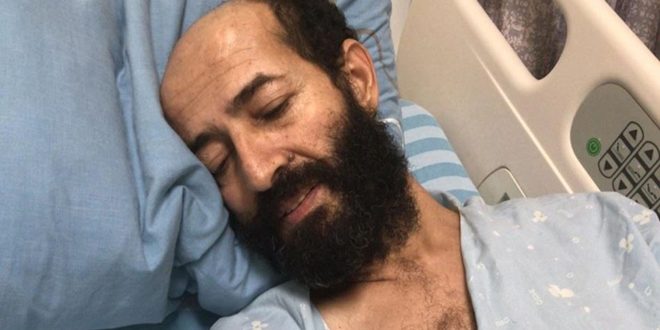Palestinian detainee in Israeli occupation jails in critical health condition after 83 days of hunger strike
RAMALLAH– 83 days after his open-ended hunger strike, the Palestinian detainee in the Israeli occupation jails Maher al-Akhras, 49, is now in a critical health condition, WAFA news agency reported on Saturday, citing the Palestinian Prisoners’ Club.
Al-Akhras, from Silat al-Dahr village south of West Bank city of Jenin, was detained in July and slammed with a four-month administrative detention without charge or trial and based on secret evidence not known even to his lawyer, the agency said.
Immediately after his detention, al-Akhras went on an open-ended hunger strike to protest against his administrative detention, which could be renewed for indefinite periods of time and which has been deemed illegal by international laws, demanding his release from prison to return to his wife and six children.
Several legal attempts by his lawyers to secure his freedom, including going to the Israeli Supreme Court, have failed.
Today, according to the Palestinian prisoners groups, al-Akhras is kept at an Israeli hospital following a serious deterioration in his health. He is suffering from severe fatigue, pain in the joints, abdomen and stomach, headaches, loss of weight, loss of balance and inability to walk. His hearing and speech seem to have been affected as well by his long fast, according to Wafa agency.
Concern is high that the fast could eventually affect his vital organs such as kidneys, liver and even heart, which could threaten his life and he could die at any moment.
Al-Akhras from his sick bed has told gross that he will not end his hunger strike unless he guarantees his release.
Several Palestinians held in administrative detention in Israeli prisons have previously secured their release only after going on a long hunger strike.
Some 4500 Palestinian captives, including 155 children, are facing very critical conditions in Israeli jails.
1800 captives are suffering from different diseases due to the spread of germs and bacteria inside the prisons. 700 of these prisoners need urgent treatment , particularly those with cancer and kidney failure.
Hamda Mustafa

